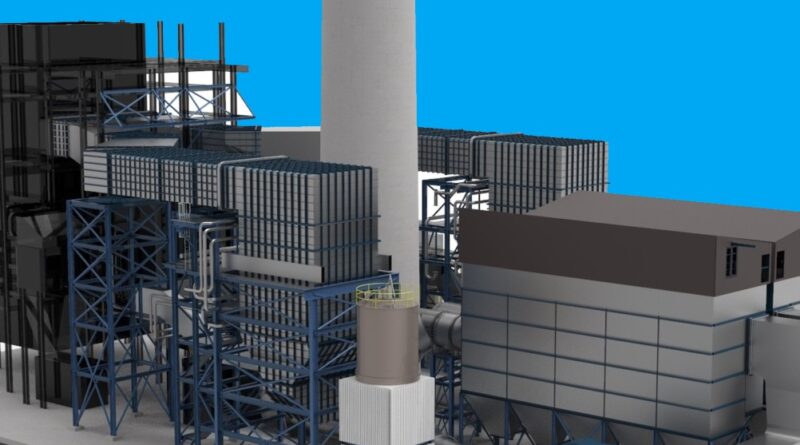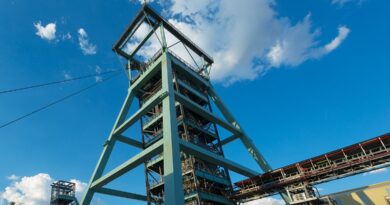From waste to energy: Steinmüller’s boilers benefit industrial sectors
Steinmüller Africa‘s fired boilers deliver efficient waste management, energy, and cost savings for pulp & paper, sugar, metallurgical and coal mining industries. With 60 years of expertise, the company offers full-service boiler solutions, including inspections to implement maintenance and repair, ensuring peak performance and longevity. Its fired boilers capitalise on sustainable waste disposal to produce steam, which is a valuable source of energy for industrial plants converting raw materials into products or generating electricity.
The versatility of the company’s boilers is valuable in sub-Saharan Africa’s industries. Although the mining sector is the largest driving industry in South Africa, the pulp & paper, and sugar industries have significantly larger amounts of waste that require disposal. Fired boilers are fuelled by waste products combined with fossil fuels such as gas, oil or coal to generate steam.
Pulp & paper plants process wood chips and use heat and chemicals to dissolve the lignin to obtain the fibre that is used for paper making. The remaining liquor is thickened into a tar-like substance and burned in special boilers, heating water in the boiler tubes to generate steam.
In the sugar industry, sugar cane is cut, heated and crushed to extract the juice, which is crystallised to yield sugar. This process results in high volumes of cellulose fibre waste, known as bagasse, with a high residual moisture content, which must be disposed of. The bagasse makes up approximately 30 to 40% of the sugarcane volume and can be burnt in special bagasse boilers generating useful steam for use in the sugar making process, ensuring environmentally friendly waste disposal.
Finally, the mining industry generates waste during the process of sorting valuable mineral ore from the surrounding rock, or the refining of ore to yield the valuable commodity. In the coal mining industry, coal is washed to separate high quality and medium to low quality products. The finer coal dust and coal rich in sulphur are generally rejected and disposed of in large reject coal dumps. Some of the coal rejected as “low quality” can be burned for energy production. For example, ESKOM or steam production plants use this energy to power large fans used for mine ventilation. Alternatively, rejected coal is sold to other industries to assist in the sustainable disposal of other industrial waste such as bagasse or fibrous wood waste.
“Waste in all three industries serves as fuel to generate steam in a fired boiler, making these industries more sustainable,” comments Warwick Ham, Boiler Process Group Leader, Steinmüller Africa. “We can engineer the most profitable solution based on the client’s waste source, steam, temperature, and pressure requirements.”
Steinmüller Africa’s competitive advantage lies in its in-house design and engineering expertise, allowing for local customised solutions. It has secured several large contracts in South Africa for its maintenance and inspection services, which are highly specialised to ensure optimal performance and longevity.
Boilers are typically designed to operate for about 200 000 hours. Boiler tubes are essentially the only parts that can require repairs. Due to the large average boiler size, Steinmüller Africa conducts its inspection and maintenance services at the client’s site and brings all necessary inspection technology and experts, welding technology, cranes and equipment. These inspections and maintenance outages require a careful plant shutdown where the very large boilers are cooled slowly, which takes days before any tubes can be inspected or cut and replaced.
Boiler inspections should occur every 18 months to determine whether the boiler tubes are corroding, due to low quality water, or eroding, due to ash or heat damaged from excessive temperatures. Once inspection reports and engineering assessment of the root causes are performed, these tubes are replaced, and the boiler has a new lease on life. Typically, the outage schedule includes a first inspection at 18 months for assessment; the mini overhaul outage at three years with inspection and minor replacements, another inspection outage at the four-and-a-half-year mark; and the longer general overhaul outage at six years where a more detailed inspection is carried out, followed by more extensive replacements and refurbishment of worn components.
In both the fabrication and repair of boilers, alloy steels are welded together at a high temperature. The material is pre-heated to prevent cracking, welded, held at that temperature and cooled slowly as a post-weld heat treatment to ensure optimal integrity.




